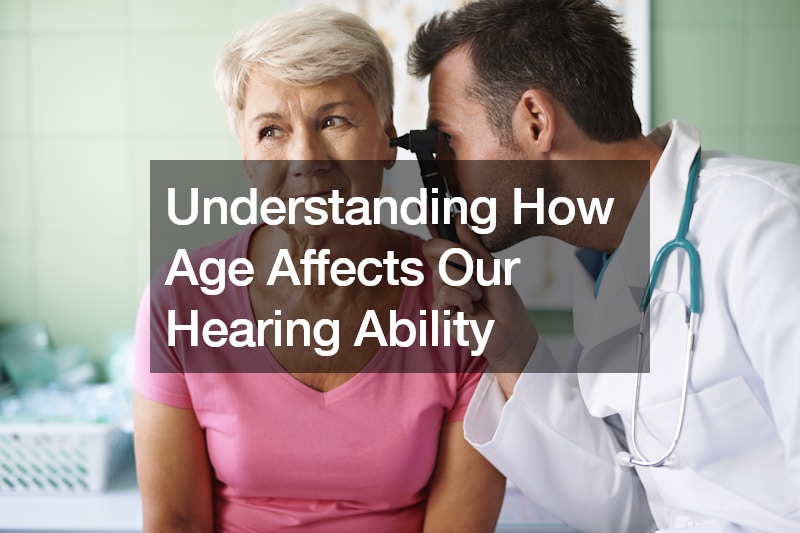As we journey through life, there are many changes we experience, some visible and others imperceptible. One such change that often goes unnoticed until it significantly impacts our daily lives is the gradual decline in our hearing ability as we age. This phenomenon, known as presbycusis, affects nearly everyone to some degree and is a result of various factors, primarily the natural aging process and cumulative exposure to loud noises over time.
At the core of our ability to hear lies a complex system within the inner ear, comprising thousands of tiny nerve cells called hair cells. These remarkable cells play a pivotal role in detecting different frequencies of sound and transmitting them as electrical signals to the brain for interpretation.
However, unlike many other organs in the body, the inner ear lacks the capacity to regenerate damaged hair cells. This means that any deterioration or loss of these cells is irreversible, leading to a gradual decline in hearing sensitivity.
One of the earliest signs of age-related hearing loss is the diminished ability to perceive high-frequency sounds. This decline is often attributed to the fact that the hair cells responsible for detecting high pitches are the first to encounter sound waves. Over time, repeated exposure to loud noises can cause these delicate cells to become damaged, bent, or even destroyed. As a result, individuals may find it increasingly challenging to hear sounds in the higher frequency range as they grow older.
The impact of age-related hearing loss can vary from person to person, depending on factors such as genetics, lifestyle, and environmental factors. However, audiologists often use a range of diagnostic tests to assess an individual’s hearing ability and determine the extent of any hearing loss. These audiological tests, which may include pure-tone audiometry, speech audiometry, and tympanometry, provide valuable insights into the specific frequencies and levels of sound that a person can hear effectively.
In addition to age-related changes in the inner ear, other factors can contribute to hearing loss as we grow older. These may include exposure to occupational noise, recreational activities such as listening to loud music, and certain medical conditions or medications that can affect hearing health. By understanding these risk factors and taking proactive measures to protect our hearing, we can mitigate the effects of age-related hearing loss and preserve our auditory function for longer.
One of the most effective ways to safeguard our hearing as we age is by practicing good hearing hygiene. This involves limiting exposure to loud noises, using ear protection in noisy environments, and taking regular breaks from activities that involve prolonged exposure to loud sounds. Additionally, maintaining overall health and well-being through a balanced diet, regular exercise, and managing underlying medical conditions can also have a positive impact on hearing health.
For those who are already experiencing age-related hearing loss, there are various treatment options available to help improve communication and quality of life. These may include hearing aids, assistive listening devices, and auditory rehabilitation programs designed to enhance auditory skills and communication strategies. Seeking timely intervention from a qualified audiologist can make a significant difference in managing age-related hearing loss and maintaining an active and fulfilling lifestyle.
In conclusion, age-related hearing loss is a natural part of the aging process that affects many individuals to varying degrees. Understanding how age impacts our hearing ability and being proactive about protecting our hearing health can help us maintain optimal auditory function as we grow older. By recognizing the signs of hearing loss, seeking regular hearing evaluations, and adopting healthy hearing habits, we can preserve our ability to enjoy the sounds of life for years to come.
In addition to the physiological changes associated with aging, there are also social and emotional aspects to consider when addressing age-related hearing loss. Communication plays a vital role in our daily interactions, and hearing loss can impact our ability to engage fully with others. This can lead to feelings of isolation, frustration, and even depression if left unaddressed. Therefore, it’s essential to acknowledge the emotional impact of hearing loss and seek support from loved ones, support groups, or mental health professionals if needed.
Furthermore, the prevalence of age-related hearing loss highlights the importance of raising awareness and promoting education about hearing health. Many people may not realize the significance of regular hearing screenings or the potential risks associated with noise exposure. By educating the public about the importance of hearing conservation and early intervention, we can empower individuals to take proactive steps to protect their hearing and seek timely treatment for any hearing-related issues.
In today’s technology-driven world, there are also innovative solutions emerging to address age-related hearing loss and improve accessibility for individuals with hearing impairments. From advancements in hearing aid technology to the development of smartphone apps for hearing assistance, there are now more options available than ever before to help individuals overcome communication barriers and participate fully in everyday life.
Ultimately, understanding how age affects our hearing ability requires a multifaceted approach that encompasses both physiological and psychosocial factors. By addressing age-related hearing loss comprehensively and proactively, we can ensure that individuals maintain their quality of life and continue to engage fully with the world around them, regardless of their age or hearing status.
.







